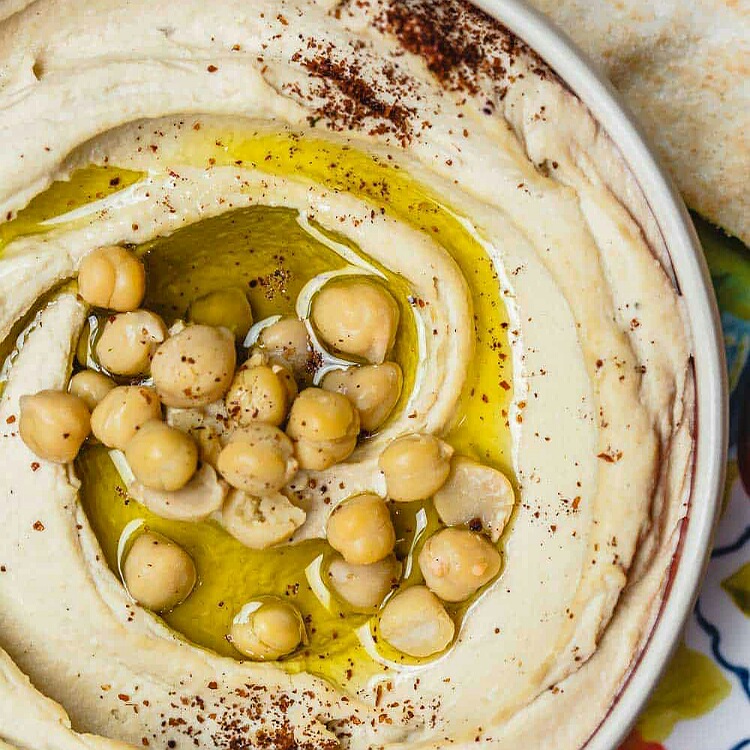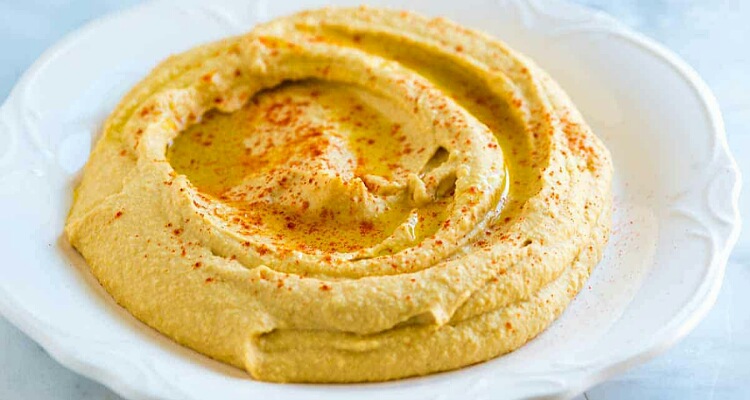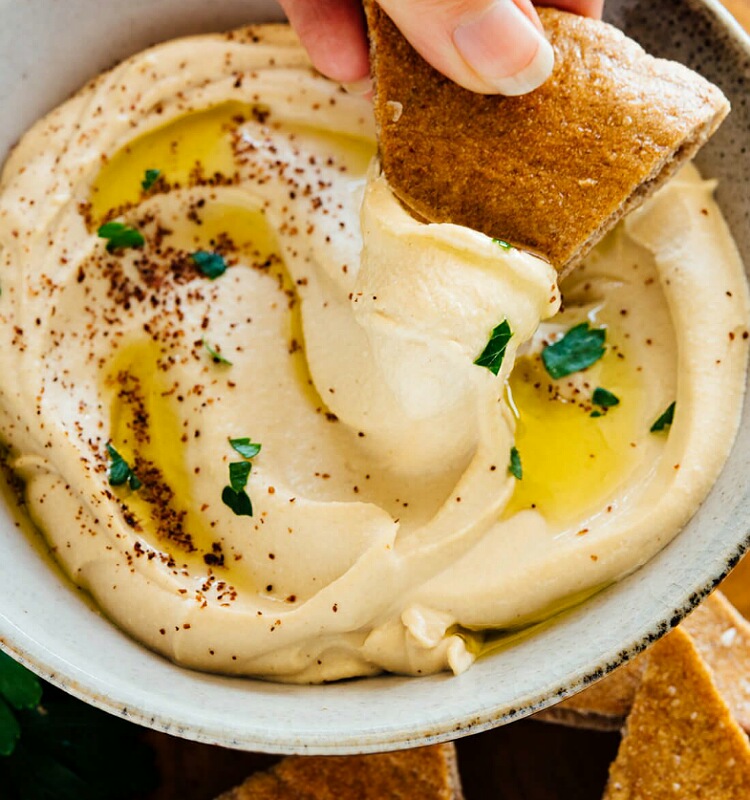Hummus is popular in the Middle Eastern nations as a dip or spread.
It is a paste that is tasty and nutritious. How is hummus made? What are the health benefits of hummus?
Hummus: preparation
Hummus is a Middle eastern dip and spread. It is popular in that region. But the popularity has now spread worldwide. Many other populations have adopted and incorporated this dish in their diets due to its nutritious and tasty nature.

Hummus is made from chick peas or garbanzo beans. These are ground and mixed with ground sesame seeds (tahini). To this lemon juice, olive oil and garlic cloves are added. These are all blended together in a food processor to yield the nutritious paste.
Health benefits of hummus
Hummus is highly nutritious. It has a lot of minerals and vitamins. 100 grams of hummus has 166 calories with 14.3 grams of carbs and 7.9 grams of proteins. The fat content is 9.6 grams.
100 grams of hummus provides 6 grams of fiber. It is rich in iron, phosphorus, copper, magnesium, manganese, zinc, and potassium. Additionally, it has lots of folate, thiamine, and vitamin B6.

Inflammation is body’s response to any physical or infectious insult. But when it is more or for a prolonged time, it could lead to other illnesses in the person.
These include atherosclerosis, heart diseases, and other bone and health issues. The olive oil has a lot of antioxidants in it that protect against chronic inflammation.
Virgin olive oil is rich in antioxidant oleocanthal that majorly assists in anti-inflammation. Moreover, sesame seeds help in reduction of the inflammation markers such as IL-6 and CRP. Legumes such as chickpeas also aid in this action.
The high fiber in hummus regulates bowel motion and helps in prevention of constipation. It leads to good gut bacteria and keeps the gut healthy.
The good bacteria act on the fiber to produce the short-chain fatty acid butyrate. This reduces risk of colon cancer.
Other benefits of hummus
Hummus food has a low glycemic index. Due to this, it helps in better control of blood sugar. It prevents high spikes.
Several studies have also revealed that compared with wheat, chickpeas is more efficient in reducing the bad fats of the blood. Due to the olive oil in it, hummus provides the body with heart beneficial substances. These reduce the risk of heart disease.

Studies have revealed that those who consumed chick peas or hummus on s regular basis are 53% less likely to have obesity.
Along with lower BMI, they also had waist size around 5.5 cms lesser than those who were not regular chick peas eaters. This is due to the dietary fiber in hummus.
It enhances the release of the fullness hormones such as cholecystokinin (CCK), peptide YY and GLP-1. Additionally, it reduces the levels of the hunger hormone ghrelin.
Increased satiety reduces food intake, lower calories and weight loss. The protein also decreases appetite and boosts body metabolism.
Hummus is good for people with food intolerance or allergy. It is gluten free with no milk and nuts. But chick peas have high levels of raffinose, a type of FODMAP (fermentable oligo-saccharides, di-saccharides, mono-saccharides and polyols).
People with irritable bowel syndrome are sensitive to FODMAPs. And hence they should avoid hummus. Sesame of hummus is also allergenic.
Read more: How to make Hummus at Home? (With Simple Ingredients)
Last but not the least, hummus can easily become part of any kind of diet. It can be spread in bread or flat bread. Add it to wraps or sandwiches. It can be a delicious dips for veggies as well nachos.